Every broadcaster, streaming or otherwise, wants their own Game of Thrones. A fantastically popular series that grips the mass imagination while racking up awards for everything from its writing, costuming, make up and acting, to even its credit sequence. If you can throw in a few warring empires then all the better. Whether or not Apple TV Plus’ adaptation of Isaac Asimov’s Foundation turns out to be their Game of Thrones, Josh Friedman and David S. Goyer’s take does at least learn some lessons from Benioff and Weiss’ folly. 1) Don’t base yourself too slavishly on the books. 2) Make sure to leave plenty of room to develop your own story (and hopefully an ending!) that works for TV.
In the far, far future of Foundation, humanity lives in a vast empire that covers thousands of worlds – though they’ve lost track of Earth, apparently. In a break from the source material, the Empire has been governed for almost four centuries by a “genetic dynasty” – a trio of clones of Emperor Cleon I. One clone, Brother Day (Lee Pace), acts as Emperor. He is advised by his older genetic twin, Brother Dusk (Terrence Mann) and, in turn, acts as mentor to a younger clone, Brother Dawn (Cooper Carter), with each one cycling between roles as they age.
The Seldon Plan
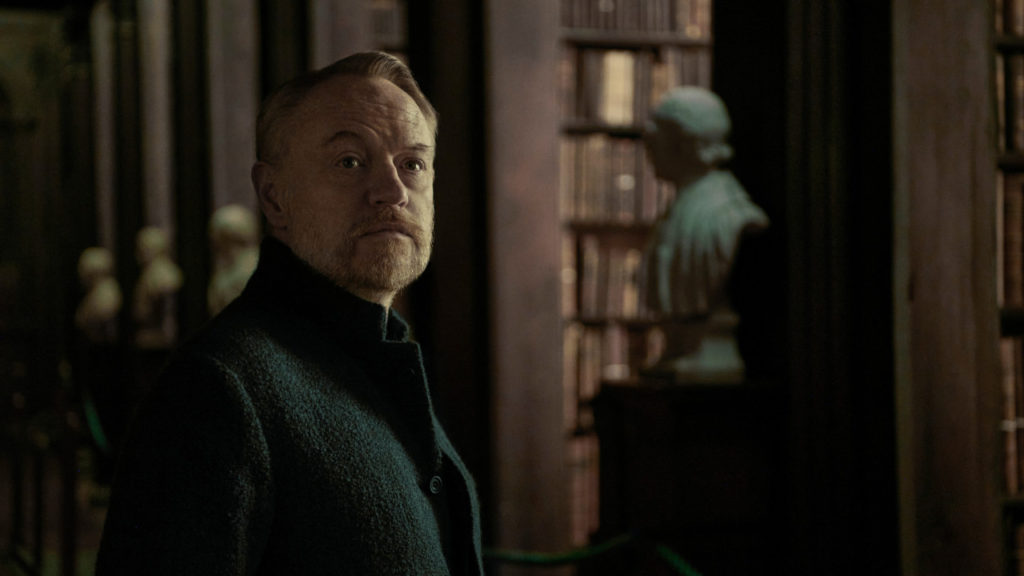
Four centuries of “The Emperor’s Peace” is threatened when “outlaw mathematician” Hari Seldon (Jared Harris) forecasts that within five centuries the empire will fall, based upon his advanced mathematical theory of “psychohistory.” His theory, which he asserts is based upon modeling of huge numbers of people, predicts that after the fall, humanity will enter a dark age that will last at least 30,000 years. While the Empire suspects this is a ploy to foment dissent, Seldon offers to form a Foundation, that will safely store scientific knowledge in an attempt to reduce the length of the dark age from 30 millennia to just a single one. Thrust onto this galactic stage is Gaal Dornick (Lou Llobell), a gifted mathematician from the periphery of the empire, who’s the only one that can understand, and verify, Seldon’s work for the Empire.
If all that sounds a little dry, I can assure you that Apple TV Plus’ adaptation is anything but. It does, however, ask you to do some work to get into it. There is a lot of world building to get through in these first episodes. Odd names are bandied about, and the overall direction of the show isn’t entirely clear from the outset. Will this be an anthology show, skipping through the centuries and characters as Hari’s plan is implemented? Will it just focus on the very early days of the Foundation? Seeing as the series of books upon which it is based spans centuries, is it even worth forming attachments to any of these characters, knowing that they will eventually be lost to the inexorable march of time?
Cleverly most of the changes Friedman and Goyer have made to the source material focus on addressing these issues, transforming a loosely connected series of novels into a format far more palatable for a peak TV audience. The first of these being the addition of that genetic dynasty.
Familiar Faces Worn-Out Places
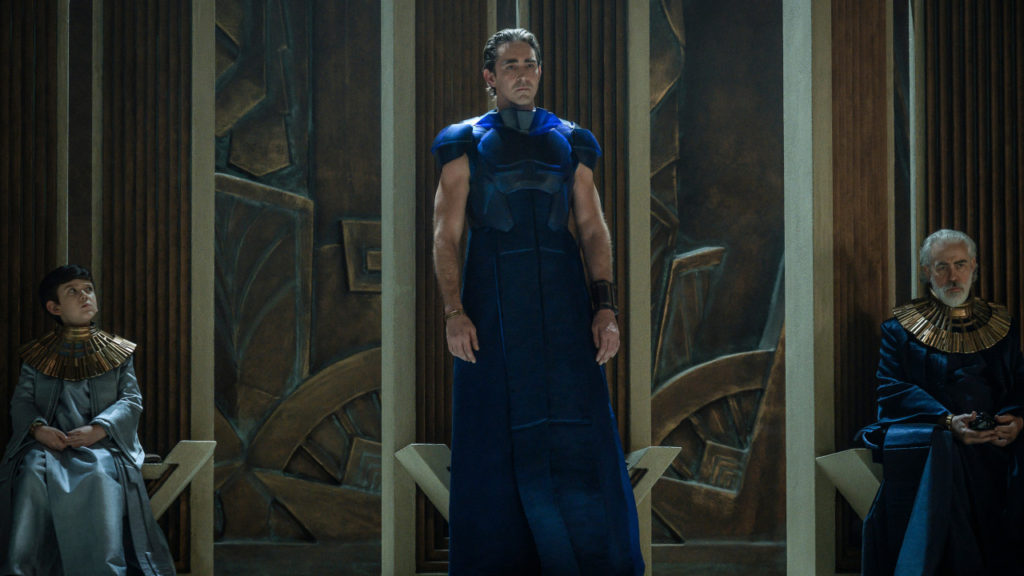
Having a cast of identical clones rule the Empire for centuries puts a familiar face on the forces of stagnation that require the Foundation in the first place. it also allows the always welcome face of Lee Pace to stick around for more than an episode or two. He and Terrance Mann deliver powerful performances of both different clones at different stages in their life cycle, as well as the same clone at different stages in his life. Similarly, the show runners have taken the characters of Gaal Dornick and Salvor Hardin from separate books, gender flipped them, and given them a much more active and prolonged role in events of the series.
While describing those events would venture deep into spoiler territory for this first season, once it settles into its stride, Foundation delivers an enjoyable watch that bounces between philosophical examinations of human behavior over massive timescales, galactic politicking, interpersonal drama, and even action. (Yes, later in this first season there’s quite lot of action, as the Foundation faces the first major “crisis” that threatens its existence.
We also get ruminations on life of the Empire’s citizens outside the palace, how religion impacts this future, and how (or if) Hari’s followers are any different from religious fanatics. Their “faith” may be based upon “scientific’ dogma, but what is the difference if none of them can actually understand Hari’s mathematical models?
Underpinning all of this is the question of Hari’s actual motives. Jared Harris keeps you guessing. He swings effortlessly between the kindly uncle who happens to be saving the universe and distant, calculating schemer.
I Will Be the River From Which All Rivers Flow
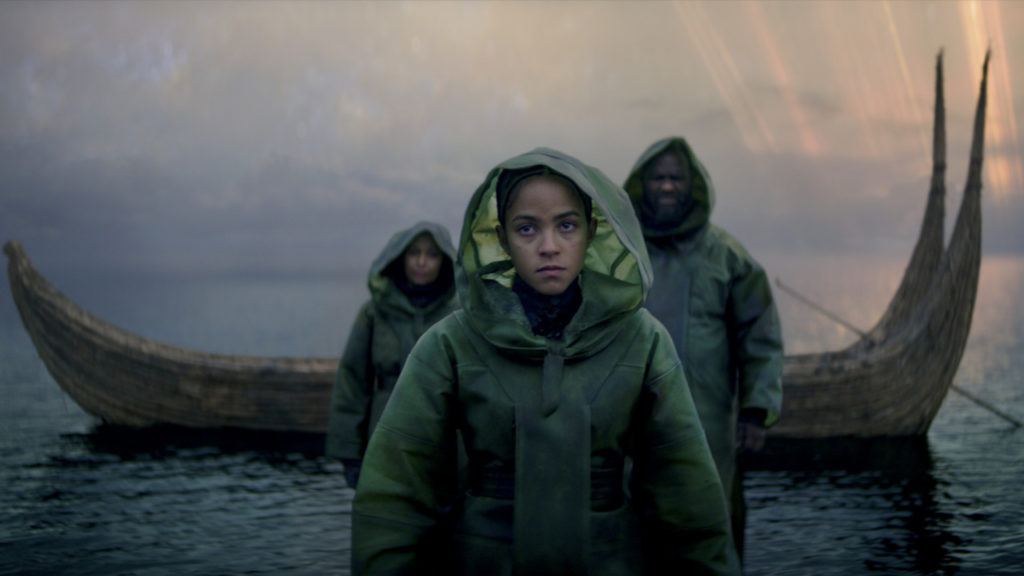
The massive scope, however, can lead to some issues. With some of the main cast missing, or in hibernation, for episodes (or decades) at a time, things can get a little confusing. The show loves to jump decades, or centuries, forward and backward in time in between individual scenes.
It can also be tremendously frustrating when Foundation decides to leave a dramatic plot dangling for a few episodes. Which is ironic for a show that states the “human mind can’t comprehend discontinuity .“ In the show, they’re explaining the reason why humans are put to sleep while traveling via folding space, but it’s as true for TV viewers.
Elsewhere, other aspects of the show can clash at times. The theatricality of the Imperial court can feel at odds with the “normal” behavior of the members of the Foundation. The show also occasionally leans on the trope of having all the citizens of particular planets dress in the same style of clothing, Star Trek style. It might make it easier for a TV audience to identify them, but this breaks down when the members of the Foundation all have their own distinct outfits.
And what outfits they are. Everything in the show looks amazing. From the costuming, to the credit sequence, to the technology and worlds realized on screen, Apple has spared no expense. (If someone could 3D print me Lee Pace’s Emperor’s breastplate that’d be great!)
Everywhere from provincial planets of endless ocean, to the Imperial grandeur of Trantor, and the dusty desolation of a planet at the end of the universe, are all brought to vivid life with magnificent sets and extensive location work.
Forward the Foundation
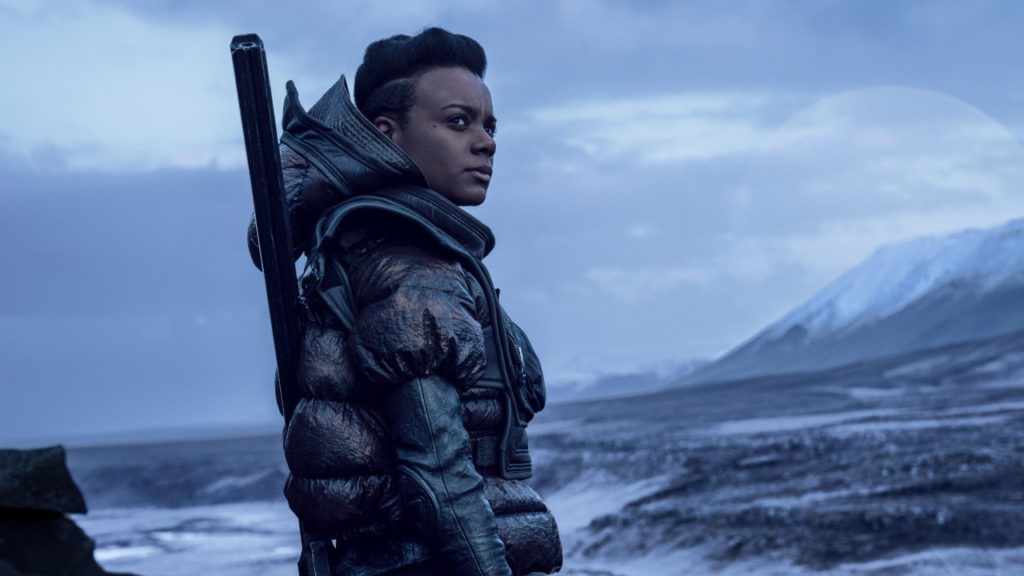
Despite my initial concerns, by the end of the 10 episodes of Season 1, I was fully invested in this story and these characters. Aside from Pace, Mann, and Harris, Lou Llobell and Leah Harvey deliver fantastic performances to match their elder peers, with Harvey providing a surprisingly badass Salvor Hardin.
I’m just not sure how a weekly audience will react to all this though.
As seen by the recent backlash against Foundation’s Apple TV Plus stable mate Ted Lasso, many saw that show as lacking in direction (e.g. “season two has yet to really establish an overarching story”). Those of us who got to binge the show early and rewatch it, knew that after Episode 8: “Man City,” the arc of this season would become all too clear, but weekly viewers felt adrift (go back and watch Jamie and Ted’s first meeting in Season 2 and witness the foreshadowing).
Even binging Foundation over the course of a few days I found myself lost a few times and annoyed when it seemed like explanations were being withheld, from both me and the characters, just to tease out a plot thread until later. It doesn’t help that a major plot point impacting the whole series is so undersold. So much so that at first, I thought it was a production error. Still, with names like Hober Mallow and The Mule dropped in the very first episode, but not appearing this season, it’s clear the show runners have a long term plan in mind.
Dune Comparisons
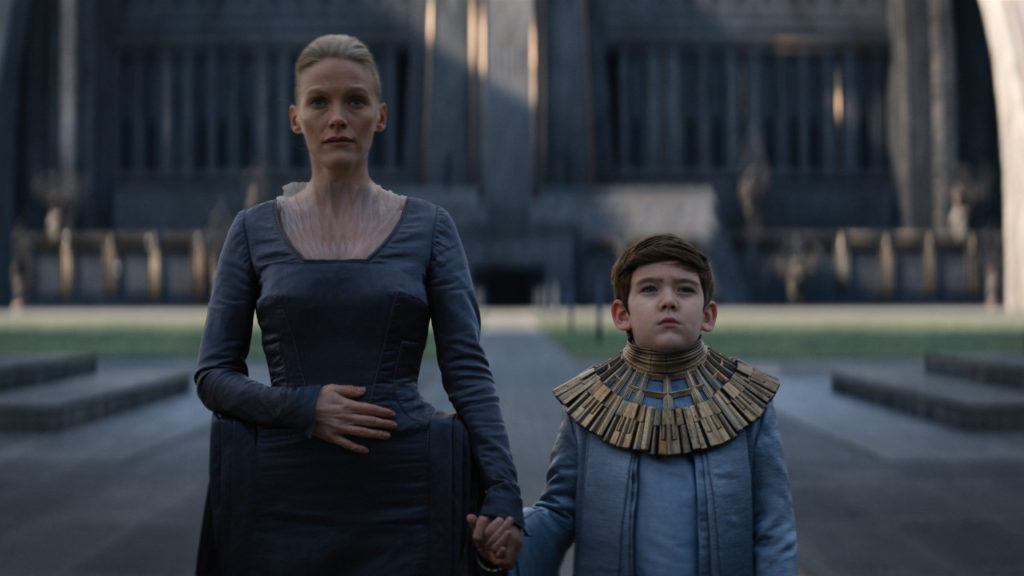
With its space empire and talk of folding space, it’s interesting that Foundation arrives on the small screen just weeks before Dune arrives on the big one. While Herbert’s books were, in some respects, a reaction to Asimov’s, as a fan of Dune myself, I found plenty to enjoy here. The political maneuvering and more character based narrative of the show now feels even more of a companion piece to Herbert’s tale of galactic empire.
With all the changes here, Foundation may upset fans of the books, but Goyer and Friedman’s version makes for great TV. Is it Apple TV Plus’ Game of Thrones? Like the accuracy of the Seldon plan, only time will tell, but this is a great start.
Maybe just wait to binge it.


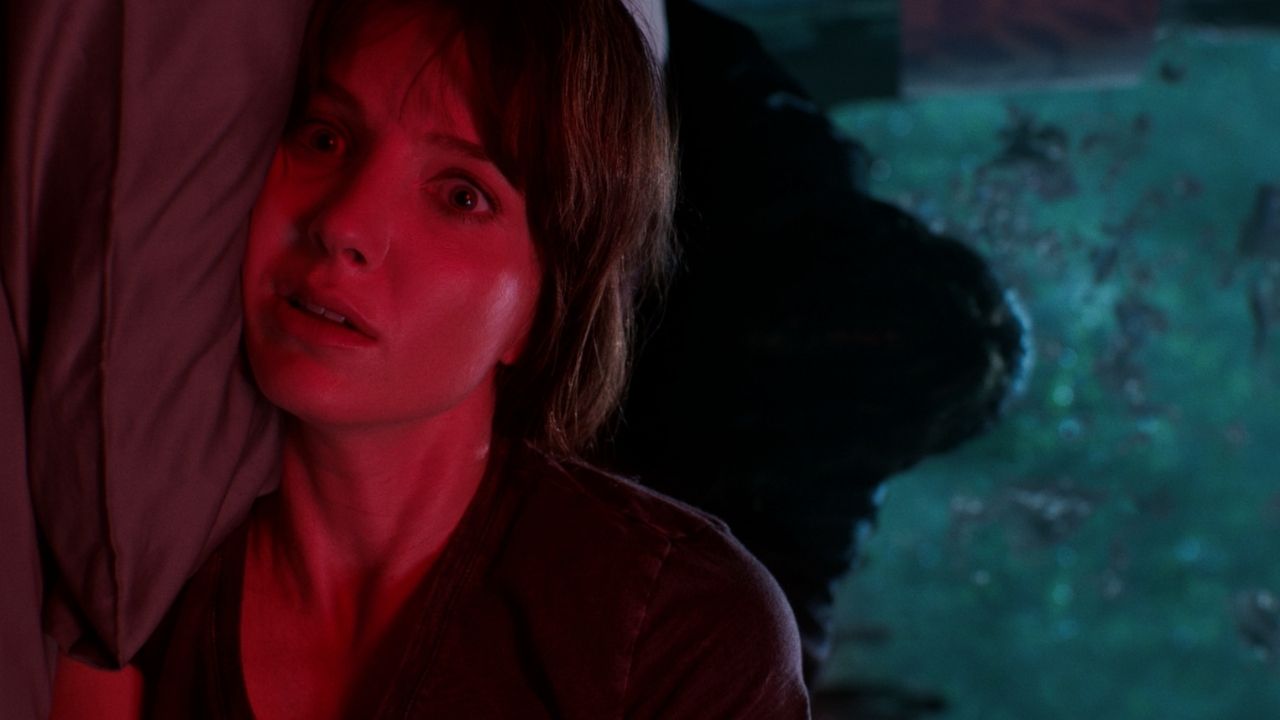
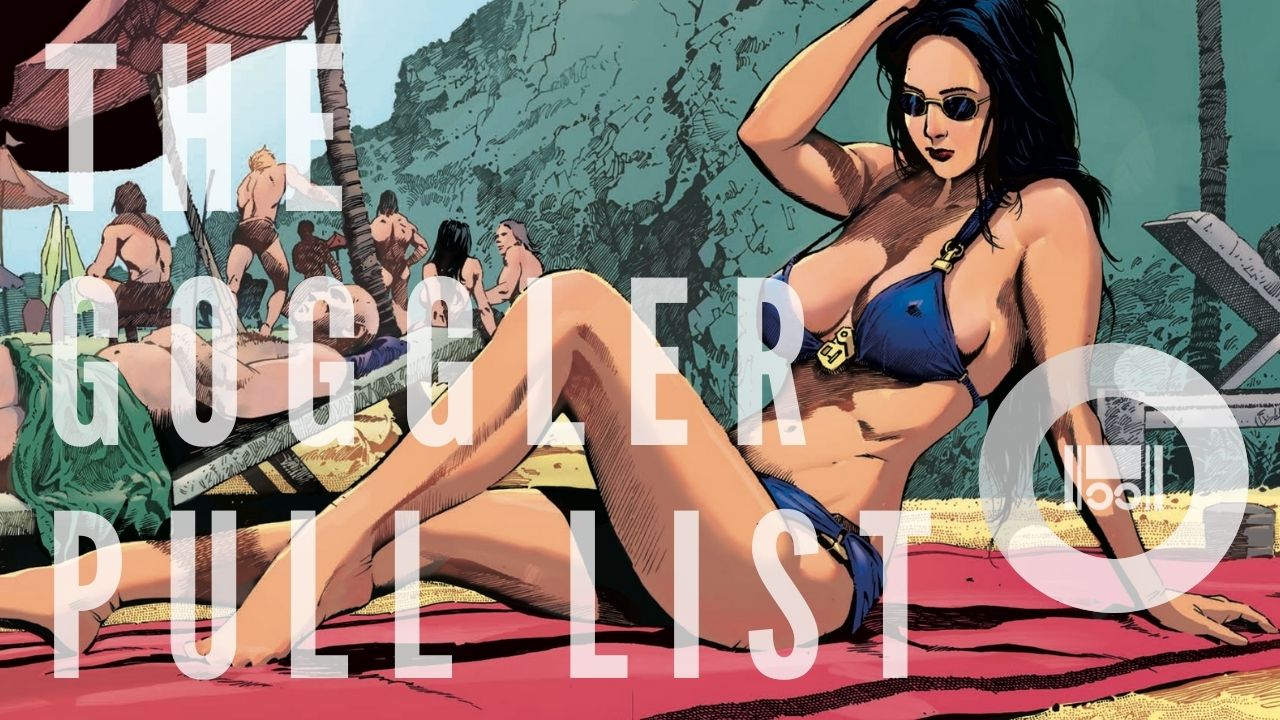
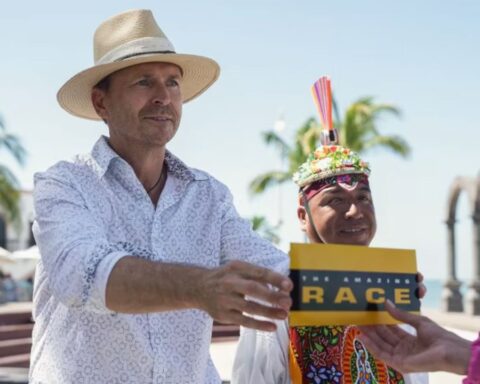
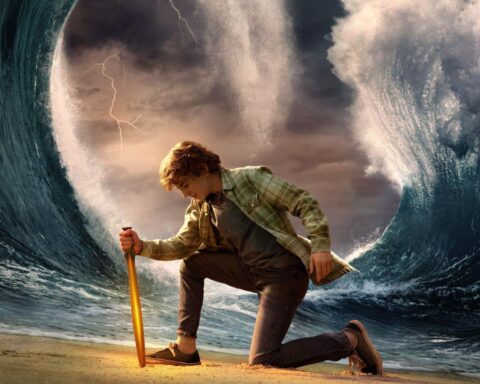

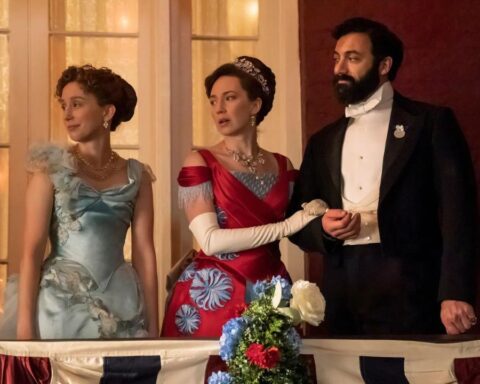
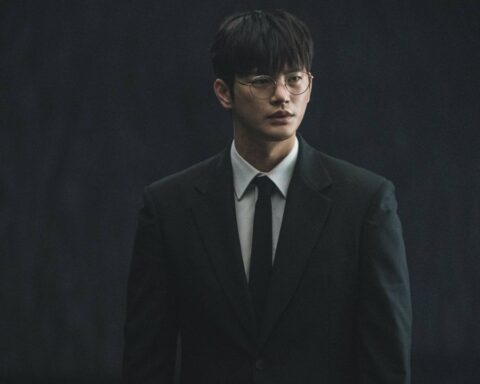
Follow Us